SQUAWK BOX -- Pictured: Jack Welch, former Chairman & CEO of General Electric, in an interview on Septermber 24, 2015 -- (Photo by: David Orrell/CNBC/NBCU Photo Bank/NBCUniversal via Getty Images)
Controversial, ruthless, intrepidly daring and successful are mere succinct words to describe Jack Welch, former chairman and chief executive officer of General Electric (GE), an American multinational conglomerate, who died in his home on Sunday at the age of 84. Unarguably one of America’s leading business leader, Welch, a former newspaper delivery boy and only child of a railroad conductor rose from his position as an entry-level junior engineer to become the youngest CEO of one of America’s biggest ventures.
Behind the huge prosperity Welch brought to the company and corporate America lies a story unknown to so many. His humble background was a huge factor to his growth, and so was the competitive spirit he learnt through sports. But his mother’s influence to strive for the best was his biggest secret.
Touted as a brutal corporate leader, he delivered results and placed the conglomerate on an enviable pedestal. And for his managerial philosophy, it is either the firm stays in the first or second position in the industry or it bows out.
HIS HUMBLE BACKGROUND
Advertisement
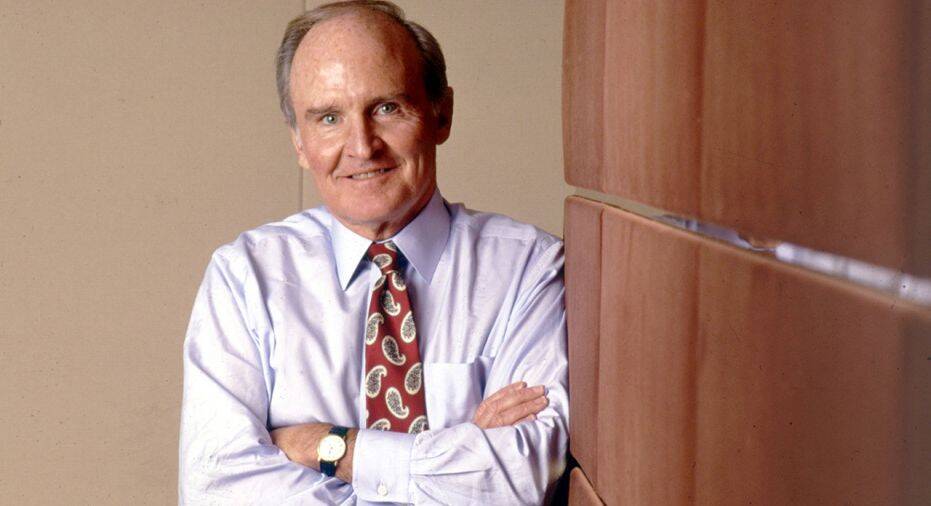
Born John Welch Jr on November 19, 1935 in Peabody, Massachusetts to parents of Irish descent, Welch’s father was a train conductor, while his mother was a homemaker, which in Nigerian parlance roughly translates to a “house wife”. He grew up in Salem, Massachusetts, where he attended Salem High School. While the young Welch was involved in baseball, football and hockey team in high school, he would work as a newspaper delivery boy, shoe salesman and drill press operator during the summer.
Welch and his mother, Grace, would wait at the train station for the breadwinner who usually left home for work by 5:30am and only get home by 7:30pm. But the poor condition of the family wouldn’t deter him from pushing his dreams.
He was accepted to University of Massachusetts Amherst to study chemical engineering where he graduated in 1957. During summer, he worked in a chemical engineering firm. Welch proceeded to the University of Illinois at Urbana-Champaign for graduate studies. He graduated in 1960 with a master’s and a PhD in chemical engineering. Interestingly, he was the first person in his family to go to a university.
Advertisement
LIFE AT GENERAL ELECTRIC (GE)
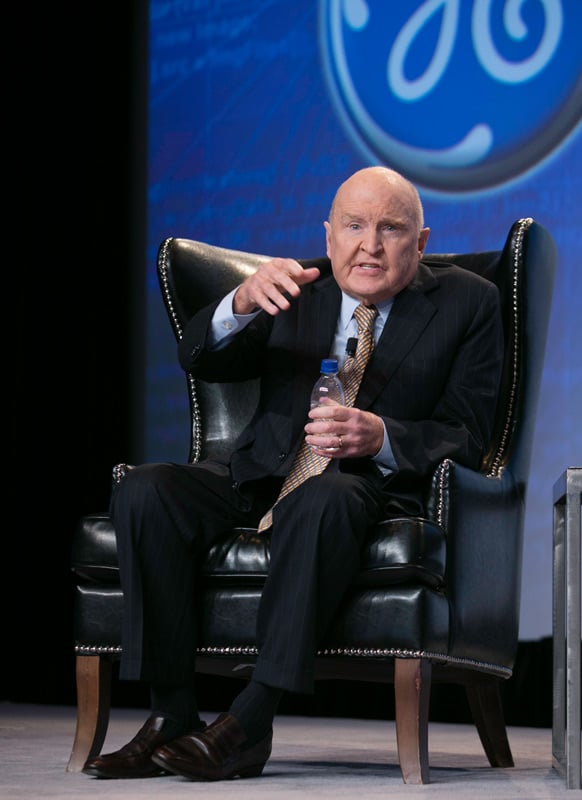
Immediately after graduation, Welch joined General Electric where he worked as a junior chemical engineer in Pittsfield, Massachusetts. In 1963, three years after he was hired, there was an explosion at the factory under his control which almost cost him the job. However, he rose through the ranks to become the vice-president, vice-chairman and later the youngest chairman and CEO in 1981 — at the age of 45.
Welch bought and sold chains of businesses and expanded the conglomerate from manufacturing to financial services and consulting. During his 20-year management, GE’s market value ballooned from $12 billion to $410 billion. At retirement, GE was said to have been rated the most valuable company in the world, after Microsoft. However, the fortune of the industrial giant went down after a new management took over.
In his condolence message, Lawrence Culp, GE’s current CEO, said late Welch reshaped the face of the company. He said, “Jack was larger than life and the heart of GE for half a century. He reshaped the face of our company and the business world.”
Advertisement
MOTHER’S INFLUENCE
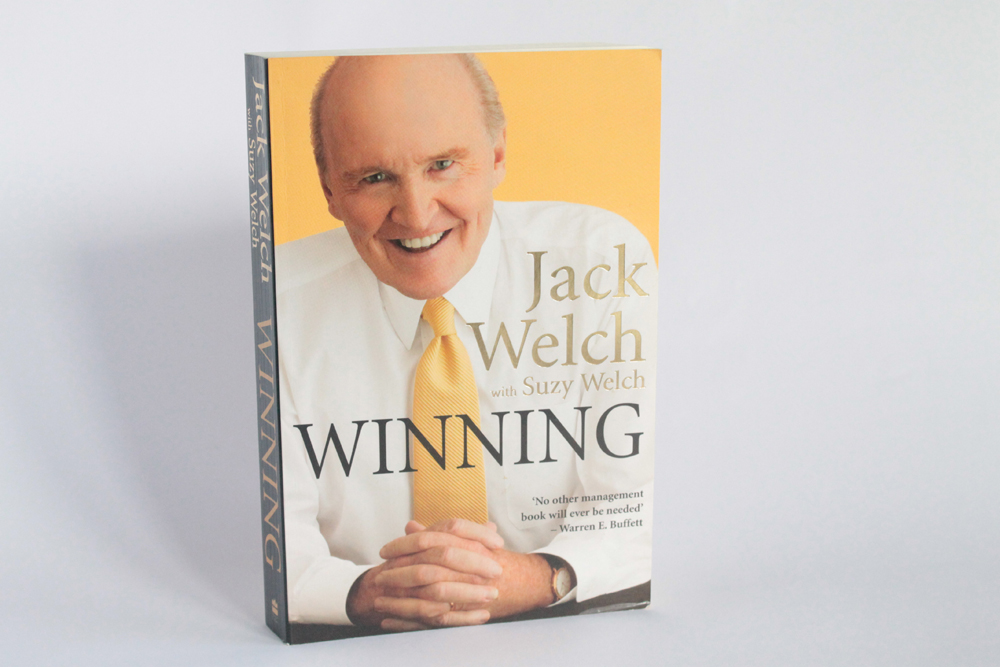
Welch, who is also a writer, said his mother was his greatest influence as she imbibed a fierce spirit of competition in him.
In an interview with BusinessWeek, he said, “I had a pal in my mom. We had a great relationship. It was a powerful, unique, wonderful, reinforcing experience.”
In his memoir, he said his mother remained the most influential person in his life. According to him, she once told him after a defeat he suffered in a game that if he didn’t know how to lose, he would never know how to win.
Advertisement
“Grace Welch taught me the value of competition, just as she taught me the pleasure of winning and the need to take defeat in stride,” he said.
“If I have any leadership style, a way of getting the best out of people, I owe it to her. Tough and aggressive, warm and generous, she was a great judge of character. She always had opinions of the people she met. She could smell a phony a mile away.”
Advertisement
According to Boston Magazine, Welch’s net worth was an estimated $900 million.
THE CONTROVERSIAL BOSS
Advertisement
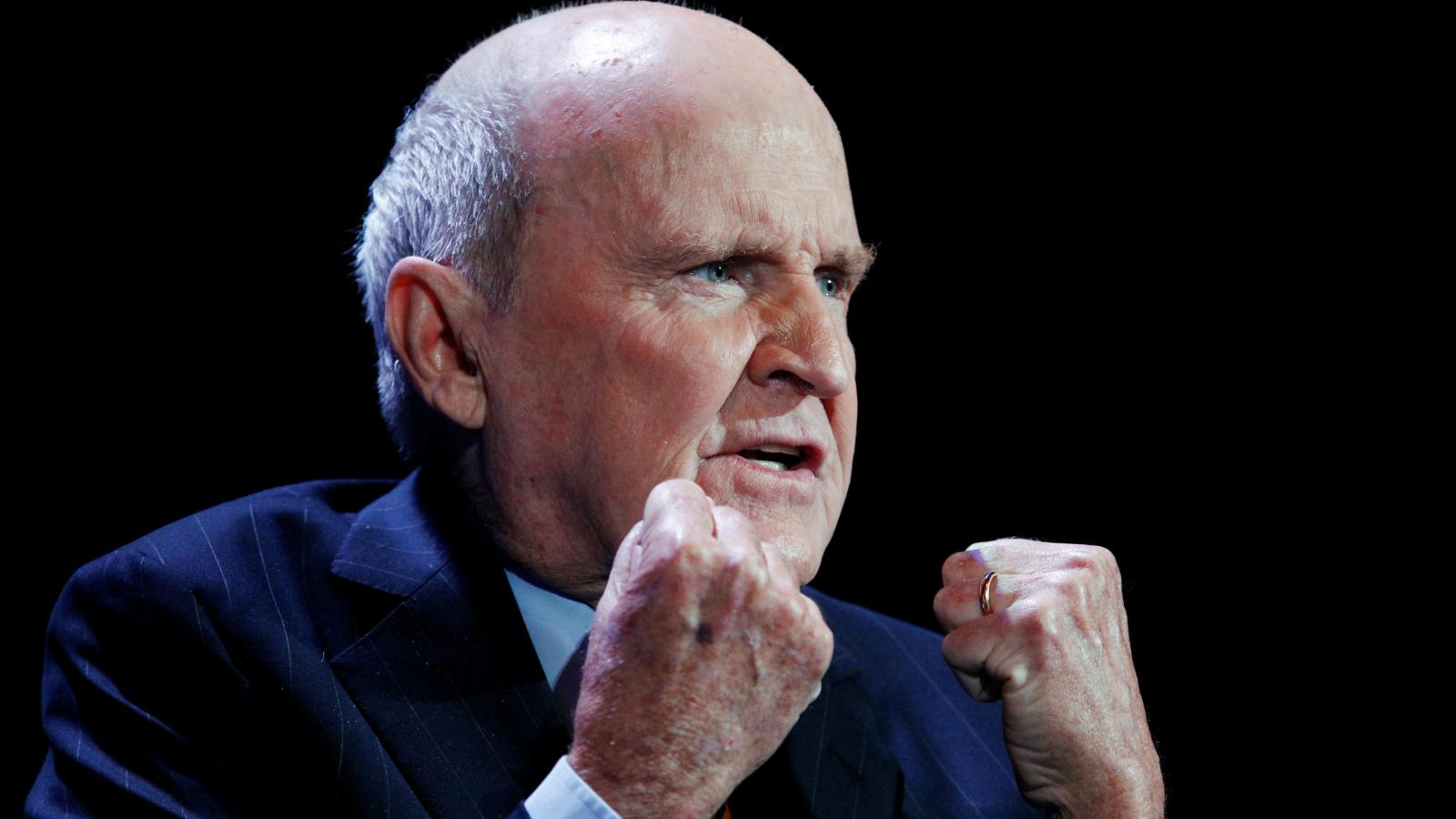
Critics would, however, disagree with Welch’s philosophy as they would rather regard him as a brutal, arrogant and fraudulent business leader. Albeit he was getting the job done, his leadership style was subjected to questions as he got enmeshed in corporate scandals.
As typical of him, he would shut down factories, sell off businesses and fire workers to reduce payrolls. During his first seven years as CEO, Welch was reported to have laid off over 100,000 employees, a quarter of the workforce. He was likened to the neutron bomb. That earned him the infamous alias “Neutron Jack” in the early 1980s.
Advertisement
Welch adopted a policy while demolishing the bureaucratic process at GE. He termed it the “rank and yank” where managers were ranked. The 10 percent at the bottom of the ranking got fired no matter how good they performed, while the 20 percent at top were rewarded. He popularised Six Sigma, a theory that aims at eliminating defects in business processes.
After his retirement, GE was alleged to have manipulated its financial results under him. The company paid a $50 million fine, although it did not admit any wrongdoing.
His huge retirement compensation, $417 million, which is said to be the largest in business history, became a subject of controversy after it appeared in public. The businessman was accused of receiving unlimited personal use of the company’s planes, office space and financial services. He later reimbursed GE for the undue benefits and paid for use of other services.
In his book, Straight from the Gut, he wrote, “From the day I joined GE to the day I was named CEO, 20 years later, my bosses cautioned me about my candor. I was labeled abrasive and consistently warned my candor would soon get in the way of my career … and I’m telling you that it was candor that helped make it work.”
MANAGER OF THE CENTURY
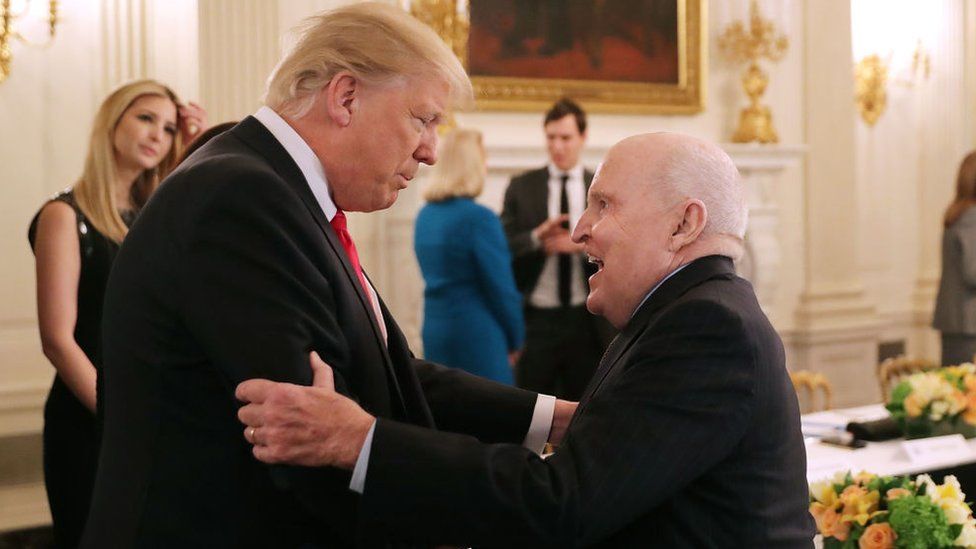
After Welch’s death was announced, President Donald Trump took to his Twitter page to eulogise the late industrialist who was a Republican. He said there was no corporate leader like him. The deceased was part of a business forum convened by Trump in 2016 to provide strategic and policy advice on economic issues. In an interview with CNBC, Welch noted that the impeachment proceedings against Trump would crash the stock, while he also admitted that the president is involved in “crappy management practices”.
Jack Welch, former Chairman and CEO of GE, a business legend, has died. There was no corporate leader like “neutron” Jack. He was my friend and supporter. We made wonderful deals together. He will never be forgotten. My warmest sympathies to his wonderful wife & family!
— Donald J. Trump (@realDonaldTrump) March 2, 2020
Nevertheless, one thing stands out about the late American business leader. He introduced informality to GE. He would make unexpected visits to companies factories and offices, send handwritten notes to workers to motivate, correct or congratulate them.
Welch was named “Manager of the Century” by Fortune magazine in 1999. His book, Winning, which he co-authored in 2005 with his wife Suzy Wetlaufer, a former Harvard Business Review editor, featured on New York Times best seller list and rated number one on The Wall Street Journal bestseller.
Welch married Carolyn Osburn a year before he began his career at GE but they divorced in 1987. His second marriage to Jane Beasley, a lawyer, ended in divorce after she discovered his intimate relationship with Suzy, the journalist who interviewed him for a business story. Beasley got away with $180 million in divorce settlement. He is survived by four children.
4 comments





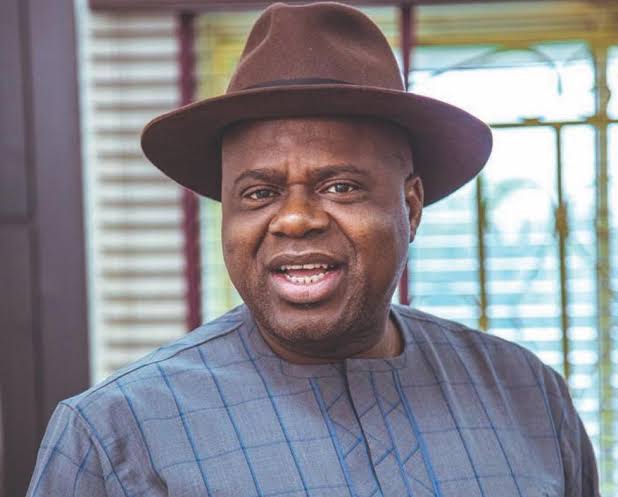


This is really tragedy
RIP Sir.
Continue to RIP legend
Wow this man is dead!!